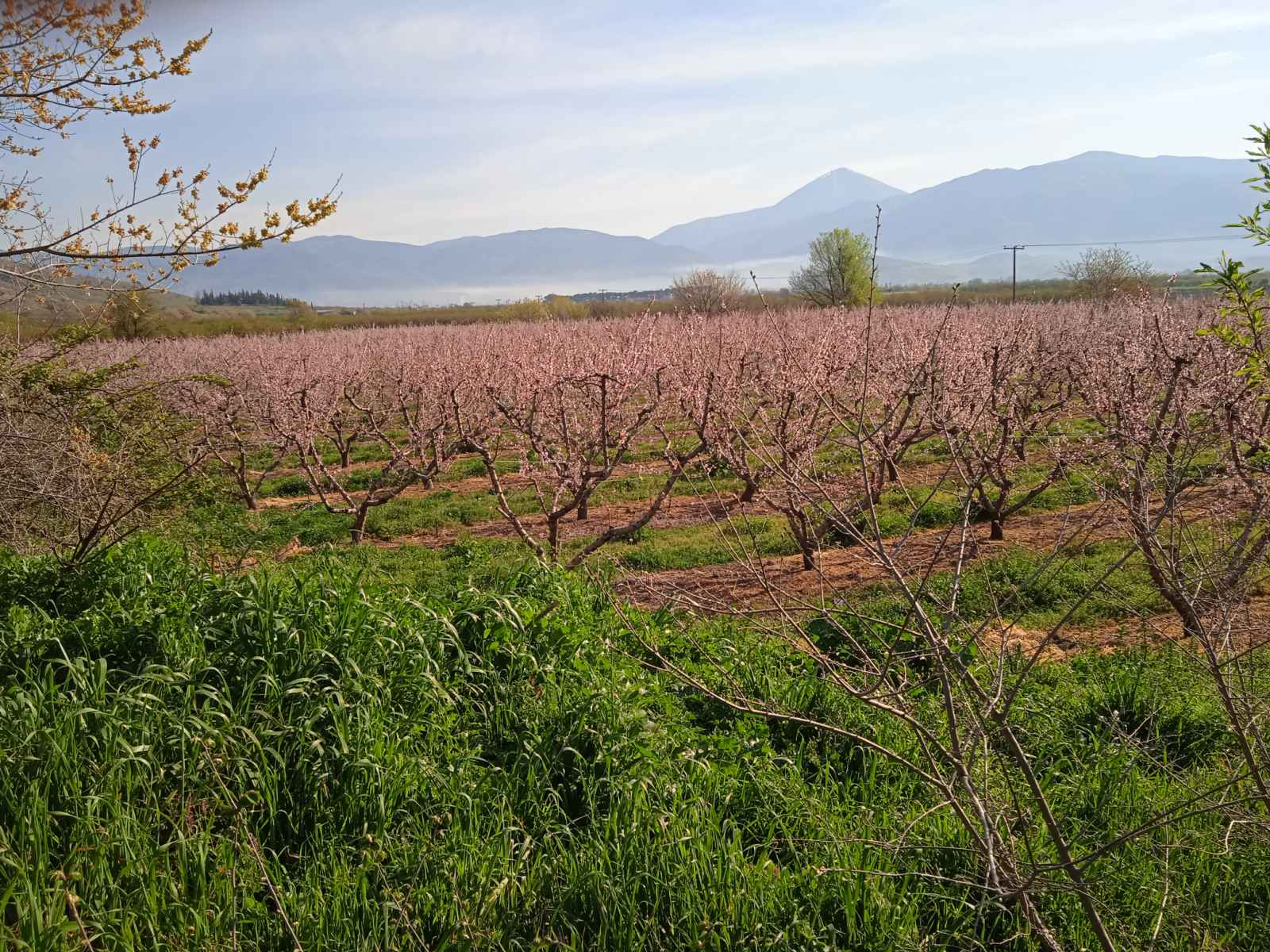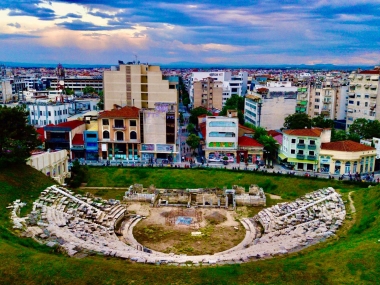How PDOs and PGIs can level up Greece’s primary sector (the example of Larissa and Thessaly)
Edited on
07 January 2022In recent years, in the era of globalization of markets, the labeling of agricultural products concerns an increasing range of products, producers and sales networks. In this context, special reference is made to the products labeled PDO (Products of Designation of Origin) and PGI (Products of Geographical Indication). These products are constantly gaining ground in the respective markets, constantly rising in the rating of consumers and recording significant profits for their producers.
To this end, regionally anchored products have been supported by the EU quality policy schemes for product names of PDO and PGI since the 1990s in order to preserve culinary diversity, an integral part of European cultural heritage. These labels provide measures to help producers build on the high-quality reputation of domestic products and promote their unique characteristics, in order to sustain competitiveness, profitability, diversity, development and growth in the rural areas where they are produced and protect local knowledge, skills and jobs.
The label PDO (Protected Designation of Origin) identifies a product that originates in a specific place, region or country, the quality or characteristics of which are essentially or exclusively due to a particular geographical environment with its inherent natural factors (raw materials, environmental characteristics, location) and human factors (traditional and craft production) and the production, transformation and elaboration phases of which all take place in the defined geographical area, in respect of rigid production regulations established in the procedural guidelines of production.
In addition, the label PGI (Protected Geographical Indication) indicates a product that originates in a specific place, region or country, whose given quality, reputation or other characteristics are essentially attributable to its geographical origin, and for which at least one of the production steps takes place in the defined geographical area.
The agri-food value chain “from farm to fork’’ includes all agri-business activities, from inputs in the agricultural production to gastronomy and consumption of food and beverages products. The role of the Greek agri-food sector is pivotal because of the: a) strong presence of food manufacture in the domestic economy, b) connection of the Greek diet with the healthy and nutritious Mediterranean diet, c) rich soil conditions and favorable climate characteristics, d) strong presence of successful food companies, e) high level of food safety and quality and f) export orientation of domestic agricultural and processed food products.


Where does city of Larissa stand?
Larissa is the largest city in central Greece, and it is also the capital of Thessaly Region. Located in the largest plains in the center of the country, it’s a transport hub, easily accessible via road and train. It is an economic, services, education, administration, cultural and commercial important focus with a significant agricultural hinterland. Its economy’s main orientation is the services sector, but it is also connected to the agricultural sector since the emergence of agro-food industries in the greater area.
The wider area (Region of Thessaly) is regarded as the heart of agricultural and livestock production in our country and has a comparative advantage in the production of such products which are exported to the international market. Famous examples of Thessalian PDO and PGI products are FETA, Kaseri, Manouri, Galotyri, Batzos Thessaly, Graviera Agrafon Karditsa (cheese), Lamb and Goat of Elassona (meat), Firiki Pelion and Apples of Zagora (fruit), Canned Magelia (olives), Rapsanis Larissa, Anchialos Magnesia, Mesenikola Karditsa, Tsipouro Tyrnavou (PDO wines) and Tyrnavos, Elassona, Meteora, Trikala, Magnesia, Karditsa (PGI wines).

Based on the above, Larissa’s priorities, as they are expressed through Food Corridors project, are, among others:
- Encourage innovation in agricultural sector, in production, in commerce and in processing.
- Enhance good-quality production, by encouraging the certification and labeling of local products
- Help local enterprises enlarge their market share. In this direction, it is worth noting that local products or products of protected designation of origin and protected geographical indication (PDO and PGI) are a typical example of the effort to create a strong local identity, since various Greek agri-food products are now identifiable, branded and inseparably related to exports, tourism and domestic culture.
- Cooperate with other public organizations (Chamber of Commerce, nearby Municipalities, Region of Thessaly etc) on agro-based subjects and encourage the cooperative movements.
Throughout the past few years, the local public administration has developed various initiatives with the aim to support the authentication and certification, to strengthen the brand name of local products and mainly to promote them in a systematic, persistent and more organized way to the international market. The basket of Thessalian products was formulated in 2011 and consisted of the products and policies that seek to restructure the agricultural economy and lead to sustainable development and promotion of local products abroad. The main purpose of the initiative was to fund services and infrastructure regarding the standardization, certification, marketing and export of agricultural products.
Furthermore, the Protocol of Quality and Origin Thessalian products Thessaly (THESSAGRO) is in force since 2013, with the main objective of promoting the recognition of quality Thessalian products in the markets inside and outside the country, offering all businesses the possibility of developing and certifying their Thessalian products in agricultural production, in order to strengthen them with labels and increase their added value, with the overall aim of leading the markets and consumer confidence. The common feature of the products falling within the scope is that they are produced within the geographical area of Thessaly and comply with the requirements of the Protocol.
In addition, the Region of Thessaly has been participating since 2017 in the Association of Association of European Regions for Products of Origin (AREPO) (2017), which is a network of regions and producer associations that deals with products of origin and EU quality schemes. AREPO was established in 2004 in Bordeaux by 16 Regions from six European countries. Now it represents 33 Regions from 8 different Member States and over 700 associations of producers for over 50% of European geographical indication (GI) products which are considered as tools for rural development and territorial planning. Agriculture and the agri-food industry are essential pillars of regional economies and GIs are crucial in preserving the territorial balance at regional level.
Moreover, an initiative that is being currently developed locally, refers to the provision of technical support to producer groups, agricultural cooperatives and agri-food related organizations in the process of preparation, documentation and submission of technical files for the certification of traditional local products with the quality label of PDO and PGI in accordance with the EU Regulation 1151/2021. The ERDF-Regional Development Programme 2021-2025 foresees the funding of actions for the promotion of local quality schemes for agricultural products and foodstuffs for the certification process of new PDO and PGI quality labels, and for the networking and promotion activities for the existing registered as PDO and PGI products of Thessaly. The implementation of the action is expected to enforce the promotion of the sustainability of local communities, the protection of both producers and consumers, the development of agritourism and gastronomy through the interconnection with culture and local traditional products as a part of the overall regional branding strategy.
Finally, a series of promotion activities already take place with the collaboration of City of Larissa, Region of Thessaly, Chamber of Commerce and Federation of Thessalian Enterprises in order to assist local SMEs label and certify their products, so they can easier promote them through various channels globally and help enhance the identity of local PDOs and PGIs, as a job generator and tool for economic development.
 Submitted by Vera Lopes on
Submitted by Vera Lopes on
